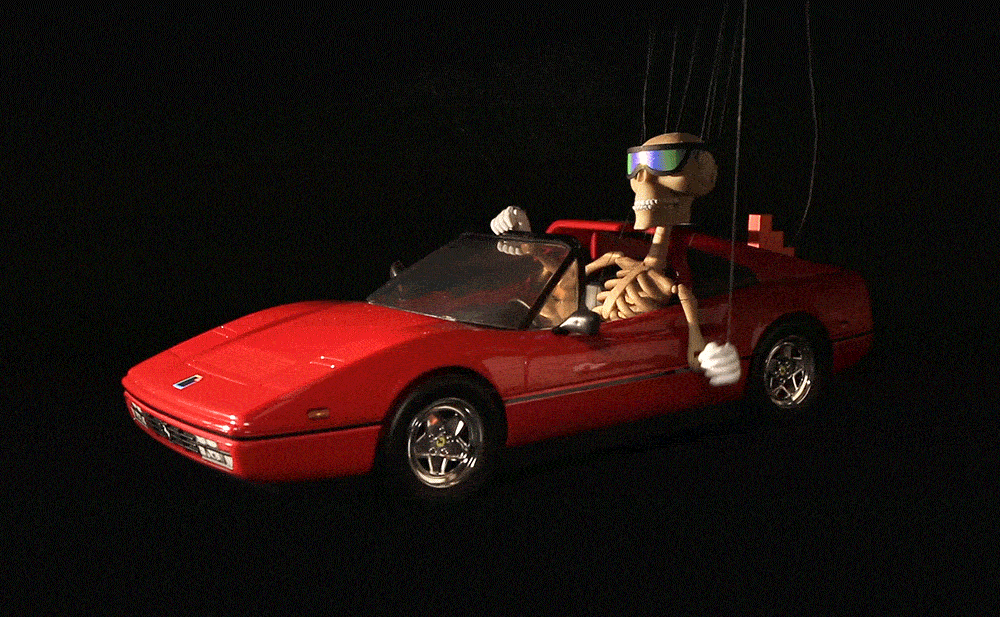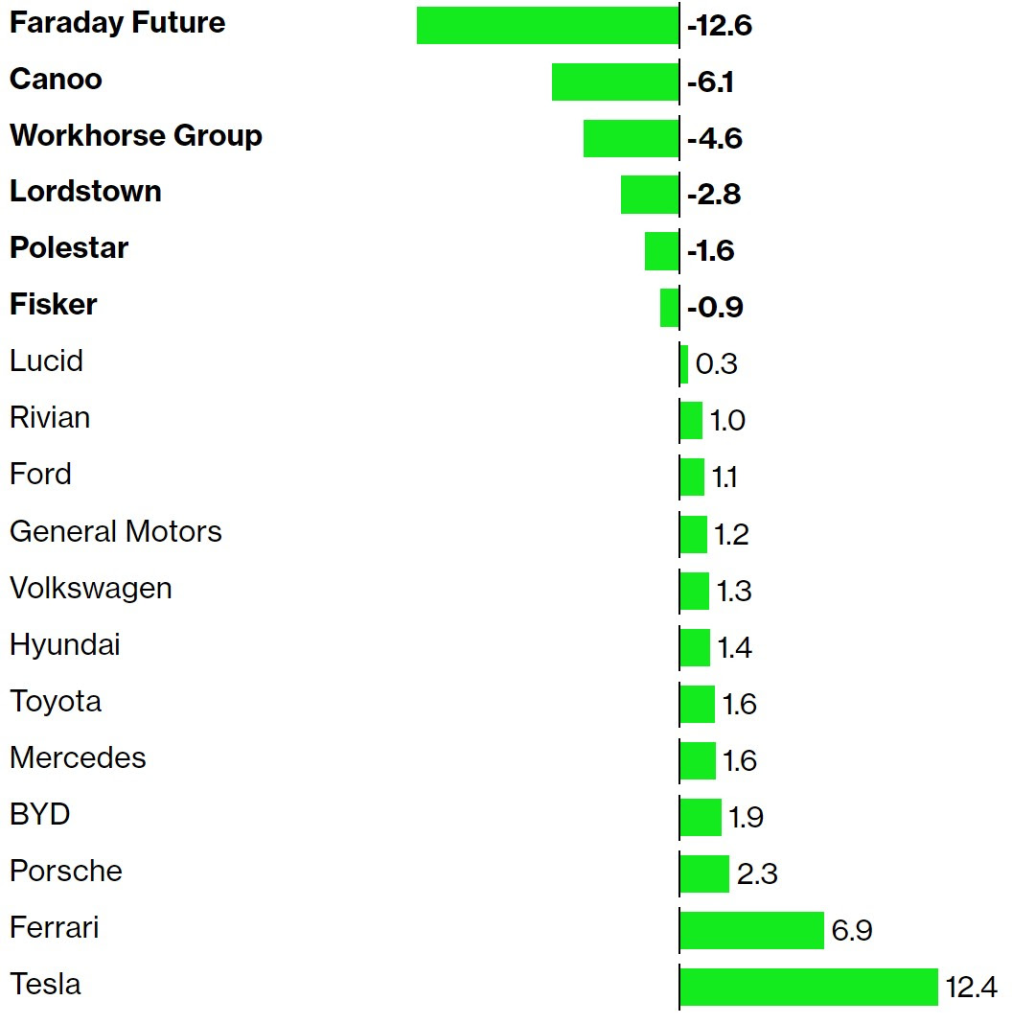The Rise of Zombie EVs

In the words of Mugatu, the global electric vehicle market is “so hot right now”. But with a growing market comes an influx of new players, all fighting for market share… and not everyone is destined to make it out alive.
Background: Zombie cars — vehicles that have been discontinued by the manufacturer but remain on road — have been around for decades. From the DeLorean (minus the flux capacitor) to the Volkswagen Beetle to anything made by Pontiac. Some EVs might soon be entering the all too familiar land of the undead as well.
- As EV startups become more prevalent and competition more fierce, even Tesla has been rolling back prices like a small town Wal-Mart to stay competitive. Unfortunately, most startups don’t have the luxury of being able to slash prices.
Zombie threat by the numbers
Altman Z-scores reflecting financial health

The Altman Z-Score – the Z is unfortunately not for zombie – uses public financial information to predict the likelihood that a company will go bankrupt. It currently has many EV newcomers like Rivian, Lucid, and Polestar, ranking below 1, which is… well, not good.
- In general, a company with a Z-score close to 0 is considered to be in “financial distress” whereas a Z-score closer to 3 is considered “safe”.
Risking death: Rivian lost about $235,000 for every truck that rolled off its lots last year, while Lucid spent over $300,000 on average for every $140,000 sale over the same period.
Zoom out: Although the EV sector is on a growing trajectory, stiff competition is needed to drive innovation, and ultimately lower prices enough for consumers to adopt EVs.
Hopefully at least a few startups can keep cars in driveways and out of the graveyard to keep the competitive spirit of the EV market alive.




